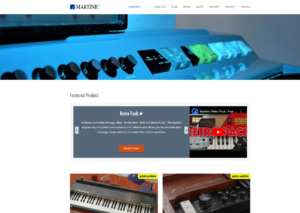Shopify POS is a versatile point-of-sale system integrated with Shopify’s e-commerce platform, making it an ideal choice for businesses with both physical and online sales channels. This article provides an in-depth review of Shopify POS, covering its features, pricing, pros and cons, and overall performance.
What Shopify POS Offers
Shopify POS is designed to bridge the gap between online and offline sales, offering a suite of features that help businesses manage their retail operations seamlessly. Here’s a detailed look at its core features:
1. Integration with Shopify E-Commerce
One of the biggest advantages of Shopify POS is its seamless integration with Shopify’s e-commerce platform. This allows businesses to synchronize their online and offline sales, inventory, and customer data effortlessly. Sales made in-store or online are automatically updated across all channels.
2. Inventory Management
Shopify POS includes robust inventory management tools that allow businesses to track stock levels in real time, manage multiple locations, and set up low-stock alerts. The system supports product variations and provides detailed inventory reports, helping businesses maintain optimal stock levels and avoid overstocking.
3. Customer Management
The POS system offers comprehensive customer management features. Businesses can track customer purchase history, segment customers based on their shopping behavior, and create targeted marketing campaigns. Shopify POS also integrates with Shopify’s customer profiles, allowing for a unified view of customer interactions.
4. Flexible Payment Options
Shopify POS supports a variety of payment methods, including credit and debit cards, mobile payments (Apple Pay, Google Wallet), and gift cards. It also integrates with various payment processors, giving businesses flexibility in how they handle transactions.
5. Sales and Reporting
The platform provides detailed sales reports and analytics, allowing businesses to track performance across both online and offline channels. Users can access reports on sales, inventory, and customer behavior, which can help inform business decisions and strategy.
6. Employee Management
Shopify POS includes features for managing employees, such as tracking sales performance, setting permissions, and managing time clocks. This helps streamline operations and ensures that staff have the tools they need to succeed.
7. Hardware and Integrations
Shopify POS is compatible with various hardware options, including receipt printers, barcode scanners, and cash drawers. The system integrates with a wide range of third-party apps and services, enhancing its functionality and allowing for further customization.
Pricing

Shopify POS offers several pricing tiers, each with its own set of features. Below is an overview of the available plans and their costs:
| Plan | Price | Features |
|---|---|---|
| Shopify Basic | $39/month | Basic POS features, online store access, inventory management, customer profiles, and reporting. |
| Shopify | $105/month | Additional features including professional reports, international pricing, and more advanced POS functionalities. |
| Shopify Advanced | $399/month | Advanced reporting, third-party calculated shipping rates, and more detailed analytics. |
Payment Processing Fees:
- In-Person Transactions: 2.7% + $0.00 per transaction (Basic), 2.5% + $0.00 per transaction (Shopify and Advanced)
- Online Transactions: 2.9% + $0.30 per transaction (Basic), 2.6% + $0.30 per transaction (Shopify and Advanced)
- Custom Rates: Available for businesses with higher volumes
Pros and Cons
Pros:
- Seamless Integration: Perfect for businesses with both online and physical stores, allowing for easy synchronization of sales and inventory.
- Comprehensive Inventory Management: Advanced tools for managing stock across multiple locations and generating detailed reports.
- Customer Management: Robust CRM features that help in tracking customer behavior and managing marketing campaigns.
- Flexible Payment Options: Supports a wide range of payment methods and integrates with various payment processors.
- Scalability: Offers various pricing plans and features that cater to different business sizes and needs.
Cons:
- Cost: The monthly subscription fees can be high, especially for smaller businesses or those just starting out.
- Complexity for Smaller Retailers: Some advanced features may be more than what smaller businesses need, potentially complicating the system.
- Additional Transaction Fees: While competitive, the payment processing fees may add up, particularly for businesses with high sales volumes.
- Hardware Costs: While flexible, the required hardware (such as barcode scanners and receipt printers) can be an additional expense.
Summary
Shopify POS is a powerful and versatile solution for businesses that want to unify their online and offline sales channels. With its seamless integration with Shopify’s e-commerce platform, robust inventory management, comprehensive customer management, and flexible payment options, it provides a comprehensive toolset for managing retail operations.
While the pricing may be a concern for smaller businesses and the system’s complexity might not be necessary for all, the overall value that Shopify POS offers makes it a strong contender in the POS market. For businesses seeking a scalable, feature-rich POS solution that integrates with their online store, Shopify POS is certainly worth considering.







